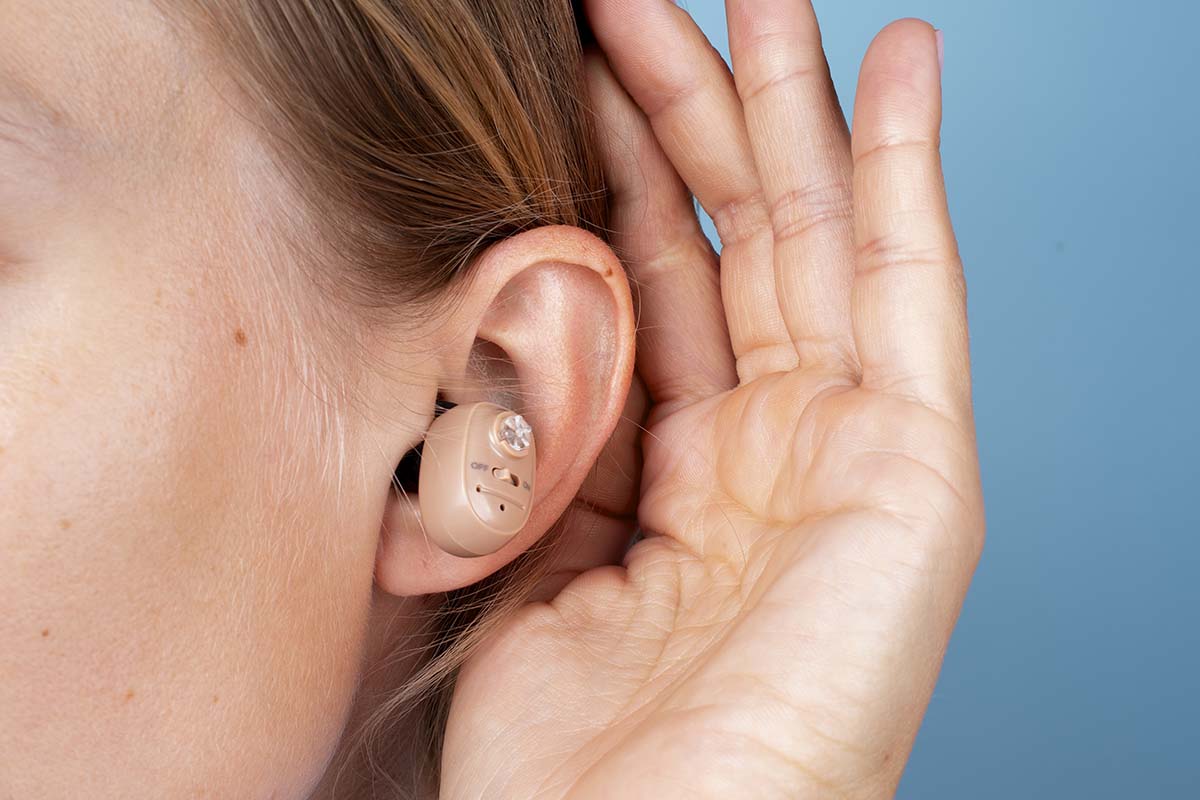What is Pulsatile Tinnitus?
Tinnitus, a common hearing problem that affects millions of individuals, can sound like many things. Tinnitus can sound like a roaring, buzzing, clicking, or humming noise that simply won’t go away. In some cases, tinnitus sounds like a throbbing pulse in your ears. This rare form of tinnitus is called pulsatile tinnitus.
If this sounds like something you’ve experienced, read on. Here, we’re taking a closer look at this type of tinnitus, reviewing the causes and symptoms of pulsatile tinnitus. We also look at some of the most common (and practical) treatment options for those with this common hearing problem. Just because there is no cure for tinnitus doesn’t mean there isn’t hope.
What Is Tinnitus?
Tinnitus is a common hearing problem that can affect people of all ages. This hearing problem is essentially the perception of sound (a phantom noise) when no external stimuli are present. Thus, this can be a very frustrating hearing problem because only the individual can actually experience it.
Many people believe that tinnitus is a hearing condition, but this isn’t the case. Tinnitus is actually a symptom of an underlying condition, such as ear wax blockage, Lyme disease, or a head or neck injury. Thus, tinnitus is a very personalized hearing problem, and depending on the sound or severity of your tinnitus, it may be traced back to the underlying condition.
What Causes Tinnitus?
Tinnitus can be a difficult hearing problem to identify because there are so many different causes. No two cases of tinnitus are the exact same, which is why it’s important to see a doctor or audiologist for a comprehensive diagnosis. Once you’ve identified the cause of your tinnitus, you’ll be able to better understand (and potentially treat) this hearing problem.
Here are some of the most common causes of tinnitus:
- Exposure to loud noises over time.
- Age-related hearing loss.
- Head or neck injuries.
- Ear wax blockage.
- Temporomandibular joint (TMJ) disorders.
- Lyme disease.
- Ototoxic medications.
- Meniere’s disease.
- Acoustic neuroma.
As you can see, the causes of tinnitus vary drastically. While some are completely natural (age-related hearing loss or ear wax buildup), others point to more serious conditions that should be treated. A proper diagnosis, of course, is key.
What Is Pulsatile Tinnitus?
Also known as rhythmic, vascular, or pulse-synchronous tinnitus, this rare type of tinnitus still affects roughly 5 million Americans. Pulsatile tinnitus is unique in that the sound is usually coming from inside your body, which is why it sounds like a throbbing pulse. In most cases, pulsatile tinnitus is caused by blood vessel or blood pressure issues.
What Causes Pulsatile Tinnitus?
Unlike most cases of tinnitus, doctors can generally pinpoint the exact cause of pulsatile tinnitus. This rare form of tinnitus is generally caused by blood pressure or blood vessel issues, which is why this type of tinnitus normally sounds like a throbbing heartbeat. Pulsatile tinnitus is caused by one of the following medical conditions:
- High blood pressure.
- Anemia.
- Atherosclerosis.
- Overactive thyroid gland.
- Irregular blood vessels.
- Head or neck tumors.
Is There A Cure For Pulsatile Tinnitus
Currently, there is no cure for any form of tinnitus, including pulsatile tinnitus. One of the primary reasons is that tinnitus is a symptom, not a medical condition itself, and thus treatment relies on responding to the underlying cause. In many cases, the underlying cause cannot be entirely treated.
Treatments For Tinnitus
Just because there isn’t a cure, this doesn’t mean that there isn’t hope. While there is no cure, doctors and audiologists have developed a variety of methods to help individuals manage and live with their tinnitus symptoms. Some are so effective that the patients claim to no longer even notice their tinnitus.
The most effective treatment option comes down to the unique source of your tinnitus. If tinnitus is caused by ear wax blockage, for example, then an ear wax removal treatment will be the most effective option. In many of these cases, tinnitus symptoms will completely dissipate following the removal.
For pulsatile tinnitus, it’s important first to identify the specific cause. In some cases, doctors can treat the blood vessel issue or help you manage your high blood pressure. This can reduce (or, at times, even eliminate) tinnitus symptoms.
Here are some of the most common treatment options for all types of tinnitus:
- Hearing aids: this method is most effective for treating age-related hearing loss.
- White noise machines: these machines can be effective at masking tinnitus sounds. Some people even just use a fan or an air conditioner.
- Changing medications: some prescribed medications (known as ototoxic drugs) may actually damage your hearing. If you believe this is the case, consult with your doctor to see if there are options available, and never stop taking a medication without first talking to your doctor.
- Tinnitus retraining therapy (TRT) is one of the more advanced forms of tinnitus treatment. TRT combines sound masking and counseling to train your brain so that it doesn’t recognize or respond to the sounds of tinnitus. This form of treatment generally takes months to be effective.
- Relaxation methods: because stress and anxiety can make your tinnitus symptoms worse, many people find relief by developing relaxation methods. Yoga, meditation, going for a walk, or light exercise can all help you relax and relieve your tinnitus symptoms. It could also lower your blood pressure and promote overall wellness.
Conclusion What is Pulsatile Tinnitus
If you hear a deep, throbbing sound in your ears that simply won’t go away, you may be experiencing pulsatile tinnitus. This rare tinnitus sounds like a heart beating in your ears and is generally caused by blood vessels or blood pressure problems.
Unlike other types of tinnitus, pulsatile tinnitus is linked to an issue within your body and as such, is often easier for doctors or audiologists to identify.
While there is no cure for tinnitus, there are various treatment options that may prove effective. To determine which treatment option could work for you, it’s critical to first identify the cause of your tinnitus symptoms. Following a comprehensive exam, your doctor or audiologist will work with you to help you find a way toward hearing relief.




















